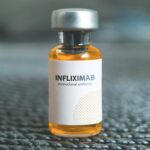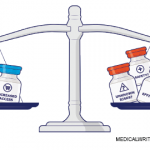Pimentel et al. evaluated the influence of anti-infliximab antibodies on patients with axial spondyloarthritis. The researchers found that anti-infliximab antibodies were associated with decreased infliximab performance and difficulty tapering its dosage, as well as a good clinical response to a second, alternate tumor necrosis factor inhibitor.






